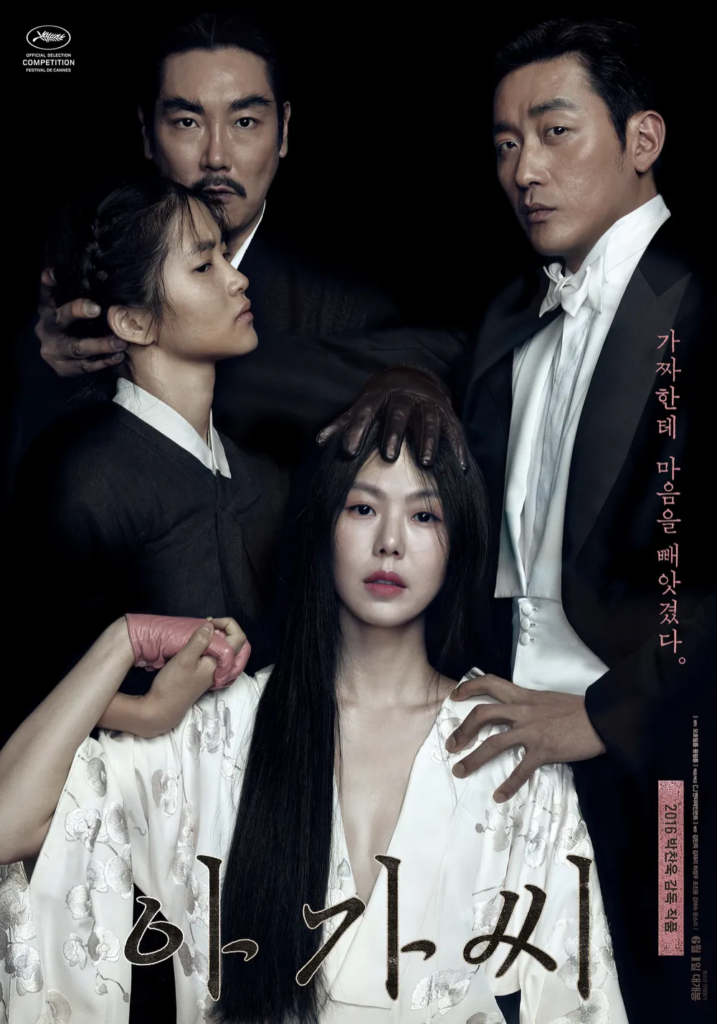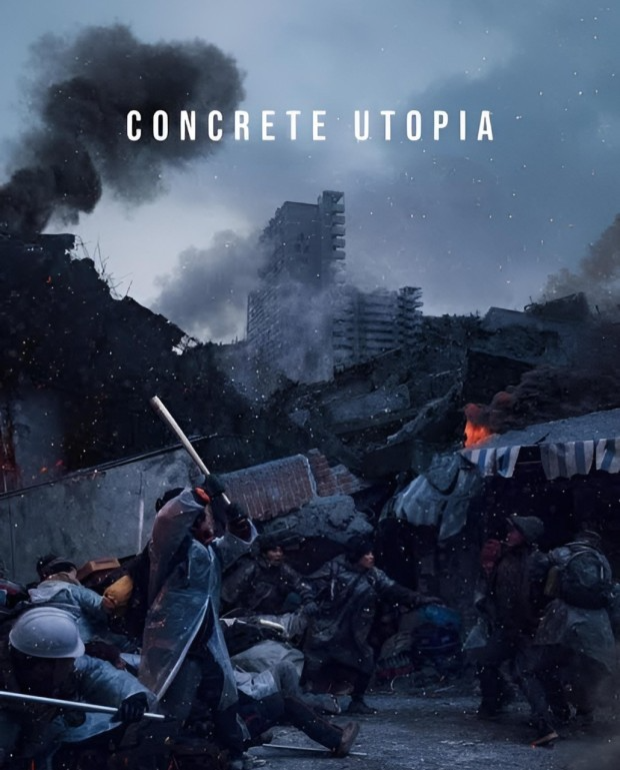Discovering Korean Cinematic Brilliance: 5 Must-Watch Films
Korean cinema has gained international acclaim for its unique storytelling, captivating visuals, and exceptional craftsmanship. From gripping thrillers to heartwarming dramas, the following list features five must-watch Korean films that have left an indelible mark on global audiences.
“Parasite (2019): A Triumph in Filmmaking Excellence”

In the realm of contemporary cinema, few films have garnered as much acclaim and left as profound an impact as Bong Joon-ho’s “Parasite.” Released in 2019, this South Korean masterpiece not only captured the hearts of audiences worldwide but also made history by winning the prestigious Palme d’Or at the Cannes Film Festival and subsequently clinching multiple Academy Awards, including the coveted Best Picture.
Plot and Themes:
At its core, “Parasite” is a social satire that delves into the stark realities of class division and economic disparity in South Korea. The film revolves around the Kim family, who cunningly infiltrate the lives of the wealthy Park family through a series of deceptions. What unfolds is a gripping narrative that seamlessly blends dark humor, suspense, and social commentary. Bong Joon-ho skillfully navigates the complexities of class struggle, making “Parasite” a compelling exploration of the human condition.
Characters and Performances:
One of the film’s standout features is the depth and complexity of its characters. The Kims, a lower-class family, showcase the lengths to which individuals will go to escape poverty, while the Parks, an affluent family, symbolize the obliviousness and detachment that wealth can bring. The performances, particularly by the ensemble cast, are nothing short of exceptional. Song Kang-ho’s portrayal of the Kim family patriarch, Ki-taek, stands out as a poignant representation of the struggles faced by the marginalized.
Cinematic Brilliance:
Bong Joon-ho’s directorial prowess is evident throughout “Parasite,” with each frame meticulously crafted to convey layers of meaning. The film’s visual storytelling, coupled with a meticulously constructed screenplay, creates an immersive experience that resonates long after the credits roll. From the intricacies of the Park family mansion to the claustrophobic spaces inhabited by the Kims, the cinematography by Hong Kyung-pyo adds a visual dimension that complements the narrative’s depth.
Social Commentary:
“Parasite” transcends its genre, becoming a powerful commentary on societal structures and the consequences of economic inequality. Bong Joon-ho masterfully uses the narrative to question the morality of both the privileged and the marginalized, challenging the audience to reflect on their own roles within a broader social context.
Global Impact:
The international success of “Parasite” marked a turning point for Korean cinema, elevating it to new heights on the global stage. The film’s universal themes and resonant storytelling struck a chord with audiences worldwide, fostering a renewed appreciation for non-English language cinema.
Conclusion:
“Parasite” stands as a testament to the transformative power of cinema. Bong Joon-ho’s meticulous craftsmanship, coupled with stellar performances and a thought-provoking narrative, cements the film’s status as a triumph in filmmaking excellence. Beyond its accolades and awards, “Parasite” leaves an indelible mark, sparking important conversations about societal structures, privilege, and the human experience. As audiences continue to revisit and dissect its layers, the legacy of “Parasite” as a cinematic masterpiece is destined to endure.
Find out more about ‘Parasite’
“Oldboy (2003): A Riveting Tale of Revenge”

In the annals of South Korean cinema, Park Chan-wook’s “Oldboy” (2003) stands out as a tour de force, an unrelenting and visceral exploration of vengeance that has left an indelible mark on global audiences. Known for its gripping narrative, intense performances, and a series of mind-bending twists, “Oldboy” is a cinematic journey that transcends the boundaries of traditional revenge thrillers.
Plot and Intricacies:
The film follows the story of Oh Dae-su, played by Choi Min-sik, who finds himself mysteriously imprisoned for 15 years without any apparent reason. Upon his sudden release, Dae-su embarks on a quest for revenge against those responsible for his captivity. What unfolds is a dark and twisted narrative, filled with psychological complexities and unexpected revelations. Park Chan-wook’s storytelling prowess ensures that the audience is taken on a roller-coaster ride of suspense and emotion.
Themes of Revenge and Redemption:
“Oldboy” is not merely a tale of vengeance but a nuanced exploration of the psychological toll that revenge can exact on an individual. As Dae-su delves deeper into the mystery surrounding his imprisonment, the film examines themes of redemption, forgiveness, and the cyclical nature of violence. The narrative poses profound questions about the consequences of one’s actions and the capacity for humanity to transcend the darkest aspects of the human experience.
Choi Min-sik’s Performance:
Central to the film’s success is Choi Min-sik’s mesmerizing performance as Oh Dae-su. His portrayal of a man driven by an insatiable thirst for revenge is haunting and emotionally charged. Choi brings a raw authenticity to the character, capturing the essence of Dae-su’s psychological torment and the physical toll of his years in captivity. The actor’s commitment to the role contributes significantly to the film’s impact.
Visual Style and Cinematography:
“Oldboy” is renowned for its distinctive visual style and masterful cinematography. Park Chan-wook, along with cinematographer Chung Chung-hoon, employs innovative techniques and striking visuals to create a unique and immersive experience. The iconic single-shot fight scene in a narrow hallway, choreographed with precision, has become legendary in cinematic history, showcasing the film’s commitment to visual storytelling.
Cultural Impact:
The impact of “Oldboy” extends far beyond its initial release. The film has influenced filmmakers globally and has become a touchstone for those exploring the revenge thriller genre. Its success paved the way for increased recognition of South Korean cinema on the international stage, setting a standard for storytelling innovation and thematic depth.
Conclusion:
“Oldboy” remains a benchmark in cinematic storytelling, a film that transcends its genre and delivers a gripping narrative with lasting resonance. Park Chan-wook’s masterful direction, Choi Min-sik’s unforgettable performance, and the film’s thematic depth combine to create an enduring classic. For those seeking a riveting tale of revenge with psychological twists and emotional impact, “Oldboy” stands as a must-watch cinematic masterpiece.
“Train to Busan (2016): An Adrenaline-Packed Zombie Thriller”

In the realm of horror cinema, Yeon Sang-ho’s “Train to Busan” (2016) emerges as a breath of fresh air, redefining the zombie genre with its relentless pacing, heart-pounding action, and emotional depth. Hailing from South Korea, this film takes audiences on a gripping journey aboard a train from Seoul to Busan, delivering a thrilling and adrenaline-packed experience that sets it apart as a standout zombie thriller.
Plot and Tension:
The narrative unfolds as a mysterious zombie outbreak engulfs South Korea, transforming ordinary citizens into bloodthirsty creatures. The central characters, including Seok-woo (played by Gong Yoo) and his daughter Su-an, find themselves on a high-speed train to Busan, hoping to escape the apocalyptic chaos unfolding around them. The confined space of the train intensifies the suspense, creating a sense of claustrophobia and constant threat that keeps viewers on the edge of their seats.
Character Dynamics and Emotional Resonance:
“Train to Busan” excels not only in its adrenaline-fueled action but also in the development of its characters. As the passengers fight for survival, the film explores themes of sacrifice, human nature under duress, and the lengths individuals will go to protect their loved ones. The emotional resonance of the characters adds depth to the traditional zombie thriller, creating a compelling narrative that resonates with audiences on a personal level.
Zombie Genre Reinvented:
Yeon Sang-ho injects new life into the zombie genre with his directorial vision. The film skillfully balances horror and humanity, offering moments of intense terror alongside genuine emotional connections. The fast-paced nature of the zombies and the innovative use of the train setting create a dynamic and exhilarating atmosphere that distinguishes “Train to Busan” from conventional zombie films.
Cinematography and Visual Impact:
The cinematography by Lee Hyung-deok contributes significantly to the film’s visual impact. From the frenetic chaos of zombie attacks to the quieter, emotionally charged moments, each scene is carefully crafted to evoke a visceral response from the audience. The juxtaposition of the confined train spaces with the external chaos reinforces the sense of urgency and impending danger.
Global Acclaim and Influence:
“Train to Busan” received widespread acclaim not only in South Korea but also internationally. Its success signaled a broader acceptance of Korean cinema on the global stage, showcasing the industry’s ability to deliver innovative and universally appealing stories. The film’s influence is evident in the subsequent interest and exploration of diverse narratives within the zombie genre.
Conclusion:
“Train to Busan” is a testament to the evolving nature of horror cinema, proving that a fresh perspective and compelling storytelling can reinvigorate established genres. With its relentless pace, emotional depth, and innovative approach to the zombie apocalypse, this South Korean thriller has rightfully earned its place among the most memorable and exhilarating entries in the zombie film canon. For those seeking an adrenaline-packed ride with genuine heart, “Train to Busan” is an absolute must-watch.
“The Handmaiden (2016): A Visually Stunning Psychological Thriller”

Park Chan-wook’s “The Handmaiden” (2016) is a tour de force in the realm of psychological thrillers, captivating audiences with its visually arresting cinematography, intricate plot twists, and a rich tapestry of themes. Set against the backdrop of 1930s Korea, the film unfolds as a tantalizing and provocative exploration of deception, passion, and crime.
Visual Splendor and Cinematic Craftsmanship:
From the very first frame, “The Handmaiden” immerses viewers in a world of visual splendor. Park Chan-wook, renowned for his meticulous attention to detail, infuses each scene with a breathtaking aesthetic that enhances the storytelling. The film’s period setting is brought to life through sumptuous production design, intricate costumes, and evocative cinematography, creating a visually stunning experience that elevates it beyond a conventional thriller.
Intricate Plot and Narrative Layers:
At its core, “The Handmaiden” weaves a complex and layered narrative. The story revolves around a young Korean woman, Sook-hee, who becomes the handmaiden to a wealthy Japanese heiress, Lady Hideko. As the plot unfolds, the film takes unexpected turns, revealing hidden motives, intricate schemes, and layers of deception. The storytelling is a testament to Park Chan-wook’s ability to keep the audience guessing and engaged throughout the film.
Themes of Deception and Desire:
Central to the film’s allure is its exploration of themes such as deception, desire, and the power dynamics between the characters. The intricate relationships and shifting alliances contribute to the psychological tension that permeates every scene. “The Handmaiden” is not merely a thriller but a nuanced examination of human nature, framed within a gripping and suspenseful narrative.
Superlative Performances:
The performances of the cast, led by Kim Min-hee as Lady Hideko and Kim Tae-ri as Sook-hee, are nothing short of extraordinary. The chemistry between the characters adds depth to the film’s exploration of desire and manipulation. The actors skillfully navigate the complexities of their roles, bringing authenticity and emotional resonance to the characters they portray.
International Recognition and Impact:
“The Handmaiden” garnered international acclaim for its bold storytelling and visual brilliance. It premiered at the Cannes Film Festival and went on to receive numerous accolades, solidifying its place as a standout film not only in Korean cinema but also on the global stage. Its success contributed to the growing recognition of South Korean filmmakers for their ability to create compelling and innovative works.
Conclusion:
“The Handmaiden” stands as a pinnacle of cinematic artistry, seamlessly blending a visually stunning aesthetic with a gripping psychological thriller. Park Chan-wook’s directorial prowess, coupled with exceptional performances and a narrative that keeps audiences on the edge of their seats, makes this film a timeless masterpiece. For those seeking a visually immersive and intellectually stimulating cinematic experience, “The Handmaiden” remains a must-watch, showcasing the enduring power of storytelling in the hands of a master filmmaker.
Find out more about “The Handmaiden”
“A Taxi Driver (2017): A Historical Drama with Heart”

“A Taxi Driver” (2017), directed by Jang Hoon, stands as a poignant and emotionally charged historical drama that provides a unique perspective on a crucial moment in South Korean history. Set against the backdrop of the Gwangju Uprising in 1980, the film not only chronicles the events of the past but also captures the human spirit and the profound impact of ordinary individuals in times of crisis.
Historical Context:
The Gwangju Uprising was a pivotal moment in South Korea’s modern history, marked by a pro-democracy movement and subsequent government crackdown. “A Taxi Driver” unfolds during this tumultuous period, offering a window into the lives of the people caught in the crossfire, their resilience, and the sacrifices made for the pursuit of justice and freedom.
Heartfelt Performances:
The heart of the film lies in the performances, particularly that of Song Kang-ho, who portrays Kim Man-seob, a taxi driver inadvertently thrust into the midst of the uprising. Song’s portrayal is both nuanced and emotionally resonant, capturing the essence of an ordinary man transformed by extraordinary circumstances. The chemistry between Kim Man-seob and his foreign passenger, played by Thomas Kretschmann, adds depth to the narrative, providing a lens through which the audience can witness the events unfolding in Gwangju.
Humanizing Historical Events:
Jang Hoon skillfully humanizes the historical events, focusing on the personal journey of Kim Man-seob as he navigates the chaos of Gwangju. The film doesn’t shy away from depicting the brutality of the government’s response to the uprising, yet it balances the darkness with moments of compassion, camaraderie, and the indomitable human spirit. Through the lens of a taxi driver, the audience is given a relatable and intimate perspective on the larger historical canvas.
Cinematic Craftsmanship:
The film’s cinematography captures the stark contrast between the ordinary and the extraordinary, utilizing the bustling cityscape of Seoul and the tumultuous streets of Gwangju. The director’s attention to period details and the authenticity of the setting enhances the immersive experience, transporting the audience back to a pivotal moment in South Korea’s struggle for democracy.
Social and Political Relevance:
Beyond its historical context, “A Taxi Driver” resonates with contemporary audiences by exploring themes of social justice, activism, and the power of individuals to make a difference. The film encourages reflection on the role of ordinary citizens in times of political upheaval and the enduring importance of standing up against oppression.
Conclusion:
“A Taxi Driver” is not merely a historical drama; it is a heartfelt tribute to the resilience of the human spirit and a reminder of the sacrifices made in the pursuit of justice and freedom. Jang Hoon’s masterful storytelling, coupled with Song Kang-ho’s powerful performance, elevates this film beyond a retelling of historical events. It stands as a testament to the enduring impact of individuals in shaping the course of history and a poignant exploration of the heart’s role in the face of adversity. For those seeking a historical drama with both emotional depth and historical significance, “A Taxi Driver” is a moving and memorable cinematic experience.
Find out more about “A Taxi Driver”


